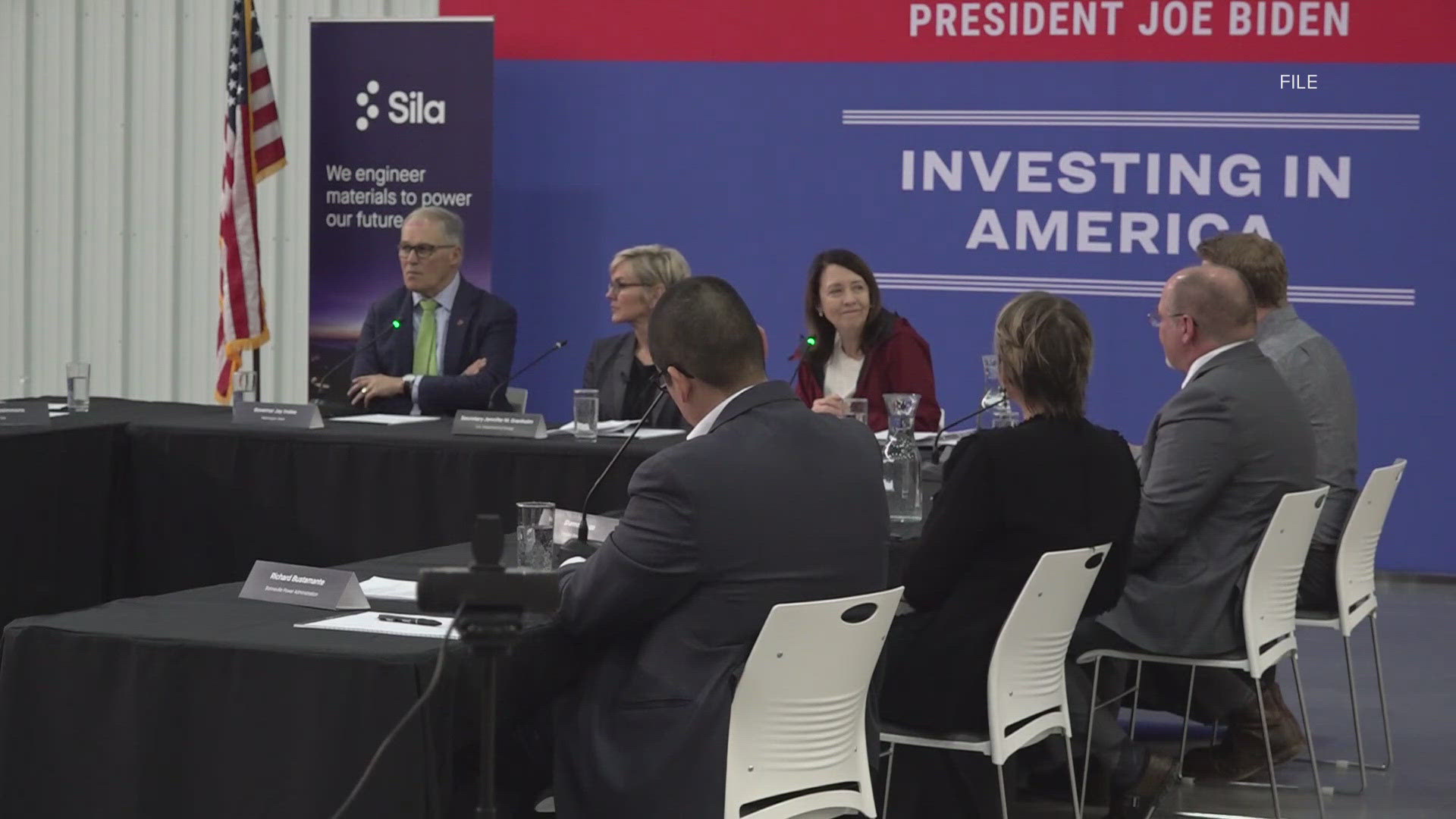MOSES LAKE, Wash. — U.S. Senators Maria Cantwell and Patty Murray announced on Friday that Group14 Technologies Inc. will receive $200 million from the U.S. Department of Energy (DOE) to expand operations at their Moses Lake facility.
The company manufactures next-generation battery components for electric vehicles. The funding comes from the $7 billion that Congress allocated in the Bipartisan Infrastructure Law to strengthen domestic battery supply chains.
“This federal investment affirms that the State of Washington is leading the way on advanced battery manufacturing,” said Senator Cantwell. “The battery components that will be produced in Moses Lake will create good-paying local jobs. Group14 is working to manufacture batteries that will allow for faster charging electric cars that can go a lot farther between fill-ups.”
According to a press release from Cantwell, the money awarded will allow the company to build the infrastructure to produce up to 7,200 metric tons of silane gas at the Moses Lake facility.
Silane gas is a precursor material used to make silicon-based anodes in advanced lithium-ion batteries that are up to 50% more energy-dense and charge faster. Group14 Technologies' efforts seek to improve the domestic battery supply chain by using silicon rather than graphite, which is used in most car batteries manufactured today and is sourced almost exclusively from China.
The silane facility is expected to create more than 300 construction jobs and employ around 150 people to sustain production.
In 2022, Senator Cantwell heralded an initial $100 million federal grant for Group14 Technologies through the DOE Battery Materials Processing and Battery Component Manufacturing & Recycling program, which she pushed during negotiations for the Bipartisan Infrastructure Law.
The company used that grant, along with $223 million of their own money, to begin building a commercial manufacturing facility in Moses Lake. The factory, known as BAM-2, is expected to open later this year and will initially produce 2,000 tons per year of silicon-carbon composite anodes for advanced lithium-ion batteries in electric vehicles.
The BAM-2 factory is expected to create an additional 200 technical and operational jobs to commission, expand and sustain production.
“For America to continue building a stronger, cleaner economy and leading the world in new technologies, we have to strengthen our supply chains and invest in bringing the industries that are powering the future to states like Washington—and that’s exactly what this funding from our Bipartisan Infrastructure Law will do,” said Senator Murray. “This investment isn’t just bringing hundreds of millions of dollars to Moses Lake, it is bringing hundreds of jobs to Moses Lake and helping our country ramp up production of a key resource that is necessary to make batteries. The new Group14 facility in Washington state will reduce America’s dependence on countries like China for silane gas and provide a crucial foundation to build even more domestic manufacturing of other products for years to come. We are building a stronger clean energy economy while creating good-paying union jobs in our rural communities—this is a win for Moses Lake, for union workers, our future, and our entire economy.”
Earlier this year, Cantwell brought DOE Secretary Jennifer Granholm to Washington to tour the new Moses Lake Factory.
According to a press release, Senator Murray also visited Moses Lake in 2022 just after the BAM-2 facility broke ground for construction and held a roundtable discussion at Big Bend Community College’s Workforce Training Center on how new clean energy investments bring career opportunities to communities while helping tackle the climate crisis.
The grant follows previous efforts by both Cantwell and Murray to support energy innovation. Murray holds the Chair position of the Senate Appropriations of Energy and the subcommittee that funds the DOE.
In 2022, Senator Cantwell helped to pass the CHIPS & Science Act. The Act included $16.9 billion in funding to support research on key technology areas at DOE National Laboratories, including the Pacific Northwest National Laboratory (PNNL) in Richland.
PNNL conducts research to support clean energy and seeks to improve U.S. national security priorities like energy storage, grid modernization and carbon capture.
In the Fiscal Year 2025 Senate energy bill that Murray authored and worked to pass out of committee, $17.74 billion was secured for the Department of Energy’s non-defense programs. Murray will seek the passing of the energy bill into law.

